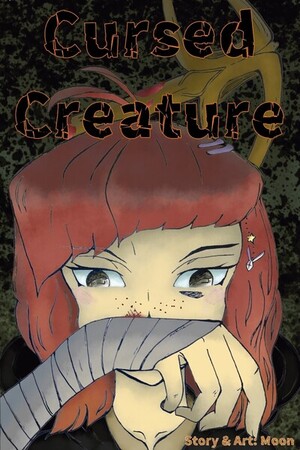Chapter 22:
Epilogue: The Author Awakes
The Last Revision
“The story does not end when the page runs out. It ends when the hand finally learns how to let go.” — August Denier
I woke to light that did not move. It pressed through plastic blinds in narrow bands, steady and pale, more domestic than holy. The air tasted like disinfectant and old coffee. A soft machine hummed off to my right, and something tugged at the crook of my arm when I tried to shift. For a moment I waited for fog, for typewriter clicks, for the world to tilt into sentences. Nothing came.
“Hey,” a voice said, too close and very human. “Easy.”
I turned my head. Dana sat in a plastic chair with her knees tucked under her, hair pinned up and escaping anyway. She was wrapped in my cardigan, the blue one I never lent to anyone. Her eyes were swollen, but her smile was clean.
“Hi,” I managed. My voice sounded like it belonged to someone who had been unused for a long time. “Where…?”
“St. Hilarion,” she said, and squeezed my hand. “You’ve been here a while.”
“How long?”
“Long enough to make me hate every vending machine in this place.”
I tried to laugh and coughed instead. Dana poured water and held the cup to my lips. The first swallow hurt. The second tasted like relief.
Bits of memory rose and fell, bright as fish just under the surface. Smoke. Heat. A sentence that refused to end. The sensation of running toward something that did not want me. And under all that, a voice that had lived behind my ribs for so long I no longer remembered where I began and she ended.
“Was there a fire?” I asked. The words were small and absurd in the white room.
Dana’s mouth twitched. “You really want the short version?”
“Please.”
“You scared me half to death. So did your apartment. A neighbor smelled smoke. The fire department got there fast. You were… out. They said smoke inhalation, exhaustion, dehydration. I said you were a writer and the dehydration was on brand.”
“I’m sorry,” I murmured.
She shook her head. “I’m just glad you’re here.”
I looked at our hands. Mine was bruised beneath the hospital tape, the skin blotched and tender. Dana’s fingers were warm around my wrist. I remembered another hand. Callused, steady. I remembered a name that should not have belonged anywhere but still made the room feel too small.
“How long,” I asked again.
“Three weeks,” she said softly. “You woke once, maybe twice, but you didn’t know me. Kept asking for a book that wasn’t there.”
I closed my eyes. I knew which book I had begged for. Even thinking of it made my skin tighten, as if the spine of it pressed through the sheets.
“Did I… say anything else?”
“You apologized,” she said. “A lot. To people I’ve never met.”
I swallowed. Guilt sat in the back of my throat like a stone. I wanted to tell her about the hall of frozen kings, the vault of almosts, the way a man bowed before dissolving into silence because it was his choice. The words tangled. I could not make them fit a room with a clipboard and a window that faced a brick wall.
“Lina,” Dana said, and pulled the chair closer. “You don’t have to explain. You can just be here.”
“I don’t know how to do that,” I said, and surprised myself by crying. It was not dramatic. It was embarrassing. Tears slid into my hairline while a monitor clicked steadily like a metronome for a song I didn’t know how to play.
Dana dabbed at my face with a tissue that dissolved into lint and a kindness I did not deserve. “You always pretended the words were safer than people,” she said. “You’re allowed to be a person again.”
I nodded and did not trust my mouth. The light on the blinds inched from white to late afternoon. Nurses came and went. One of them called me Ms. Morane and I clung to the sound like a rung on a ladder. I slept in startles and woke to find Dana still there, reading from a paperback with a cracked spine.
“Go home,” I said. “Take a shower. Eat something that isn’t a chocolate bar.”
She smiled without looking up. “You’re not getting rid of me that easily.”
A day later the doctor said words like stable and monitor at home and follow up. The physical therapist gave me instructions for breathing and walking, as if both had become foreign languages. When the paperwork was signed, Dana went to get the discharge nurse and I stared at the blue cardigan pooled on the chair and tried to remember who had bought it. For a moment I thought it had belonged to someone else. Then I remembered the receipt folded into a book I never finished and could not stand to open.
When they wheeled me out, the sun fell on my skin like something brand new. The city sounded exactly the same as it had before anything happened: buses, a shout from a construction site, a dog’s nails skittering on pavement. Nothing in the world knew that a manuscript had shattered somewhere that was not a place, that a woman made of ink had learned how to let go.
Dana brought me to my building. The third-floor hallway smelled like boiled cabbage and old carpet. I fumbled my key and she steadied my elbow.
“Ready?” she asked.
“No,” I said, and turned the lock.
The apartment was smaller than I remembered. The windows had been scrubbed, their glass replaced where it had cracked. A square of new paint sat on one wall like an apology. The books were back on the shelves in no reasonable order. My desk had been pushed away from the scorched patch in the floor. The old Royal typewriter sat on the corner where I had left it years ago, polished by time but still chipped on the ribbon spool. A faint smell of smoke clung to the curtains like a memory that refused to fade.
Dana set a grocery bag on the counter. Fruit. Soup. A loaf of bread. She moved with the casual certainty of someone who had decided to stay. I leaned on the back of a chair and tried to breathe without counting.
“You’ll need a few days,” she said. “If you want me to stay for the first night, I can.”
“I think I should try,” I said. “To be here. By myself.” The words didn’t sound brave. They felt necessary.
She nodded. “Call if you need me. I will bring an army of soup.” She reached into her coat and pulled something from the pocket. It was a small pin made from a mismatched button, its surface scuffed and ridiculous. She pressed it into my palm. “You dropped this at the library months ago. I kept forgetting to give it back.”
I held it and felt something inside me tilt, small and important. “Thank you.”
When she left, the apartment softened into quiet. Not the kind that terrified me. The livable kind. Evening stretched over the buildings outside like a sheet being shaken out. Traffic moved. A neighbor laughed too loudly. Life continued without tremor.
I walked to the desk and sat. The chair creaked. The laptop stared up with the austerity of a blank screen. I did not touch it. I pulled the typewriter closer, just enough to feel the weight of it. My fingers hovered over the metal keys. They were cold.
I did not know how to start. I thought of the way the book had felt just before it broke. Warm and living. I thought of the last line we had written together and the way the ink had dissolved like a blessing. This is where the story stops being written and starts being lived.
“Okay,” I said to the empty room. “Then live.”
I rolled a sheet of paper into the carriage. The sound was clean and specific, a small ceremony that felt more binding than any contract. The keys thudded softly when I pressed them. The R stuck and I wiggled it loose. I typed my name at the top. Not the other one. Not the one that had guarded me like a wall and starved me like a cell.
Lina Morane.
The second line did not arrive like revelation. It arrived like breath. I wrote about a library with no titles and a woman who had to learn to speak again. I wrote about a city of almosts and the gentleness of people who refuse to leave. I wrote about a knight who stood beside a choice without demanding it be a prophecy. I did not try to make it beautiful. I tried to make it true.
I wrote until the room went from blue to dark and my wrists ached. I stopped before I broke anything. I sat very still and listened to the quiet. No fog pressed against the door. No bell tolled from a tower that had never crowned its king. The only heartbeat in the room was mine.
I stood and went to the window. Outside, a boy ran down the sidewalk chasing a dog that was absolutely not supposed to be off its leash. Somewhere a radio played a song I used to hate. A woman on the corner laughed into her phone and then covered her mouth with her hand.
I whispered, “Thank you,” and I didn’t know if the words were for Dana, for Ashen, for Elyne, or for the part of me that had finally stopped hiding behind a man’s name. Maybe all of them. Maybe none.
When I lay down that night, the dark did not swallow me. It held me. I could feel the shape of the day inside it, the way a page holds the ghost of what has been typed. I fell asleep without waiting for a voice that did not belong to my body.
Morning arrived like a soft knock. I made coffee and drank it without rushing. I went back to the desk and rolled in a new sheet. I wrote my name again. It did not feel like vanity. It felt like ownership. The sound of the keys filled the apartment in a steady rhythm that felt nothing like panic. I wrote until the light shifted and then I stopped. I wanted to call Dana. I wanted to tell her it was working. Instead, I saved the words for the page.
Before I put the cover back over the typewriter, I touched the chipped spool. “I remember,” I said to the room. If there was anyone left to hear, they did not answer with ink or fog. The answering came in the quiet. It came from me.
I cleaned the cup. I put the button on the bookshelf where I could see it when I worked. I opened the window to let in a thin spring wind. It smelled like rain on concrete and laundry detergent and something faintly sweet from the bakery two blocks over. A world with choices and noise and small, ordinary mercies.
I sat again, hands over the keys, and let the day begin. I typed what I had been afraid to say under any other name.
Not to control.
Not to preserve.
To live.




Please sign in to leave a comment.